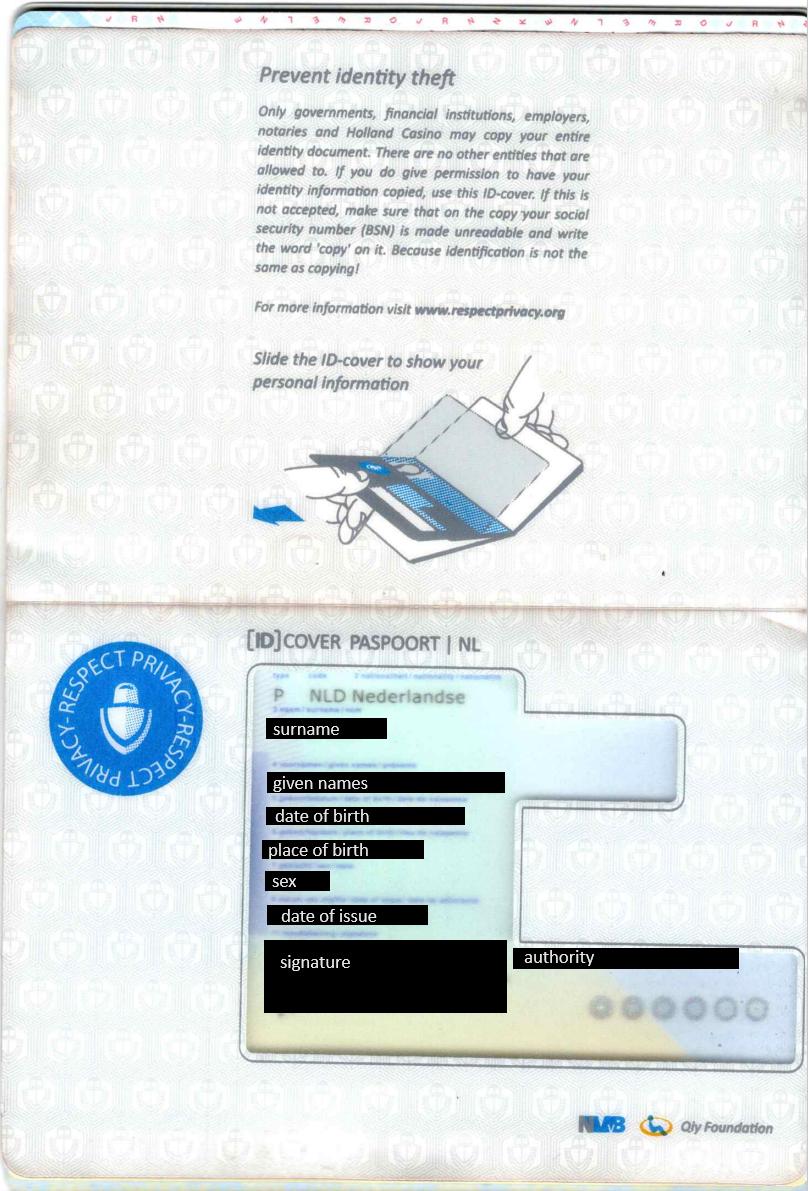Is it legal according to Swiss law to request a full copy of an ID when applying to view residential housing?
Swiss agencies often organize viewings for candidate tenants of residential homes. In order to attend such a viewing, it is often required to fill out a form and to upload a full copy (front and back) of a valid ID. Note that this is asked prior to signing any contract. Due to the high demand, tens of persons/fanilies are invited and thus required to upload a full copy of the ID, but eventually only one person/family can actually sign the housing contract.
When uploading a covered ID, such as the Dutch example shown below (but without the black bars), they are often refused. Interestingly, the text on this cover seems to suggest that it should be accepted: "Only governments, financial institutions, employers, notaries and Holland Casino may copy your entire identity document. There are no other entities that are allowed to". Does this not apply in Switzerland? Is it in fact legal and status quo to request for entire copies of the ID for the purpose of applying for or viewing residential housing in Switzerland?
